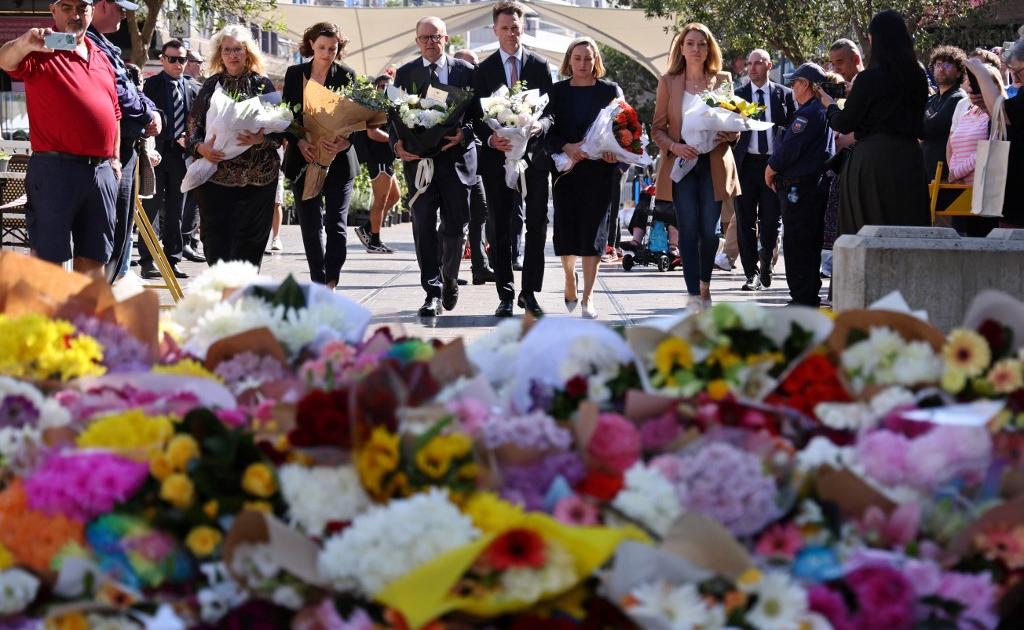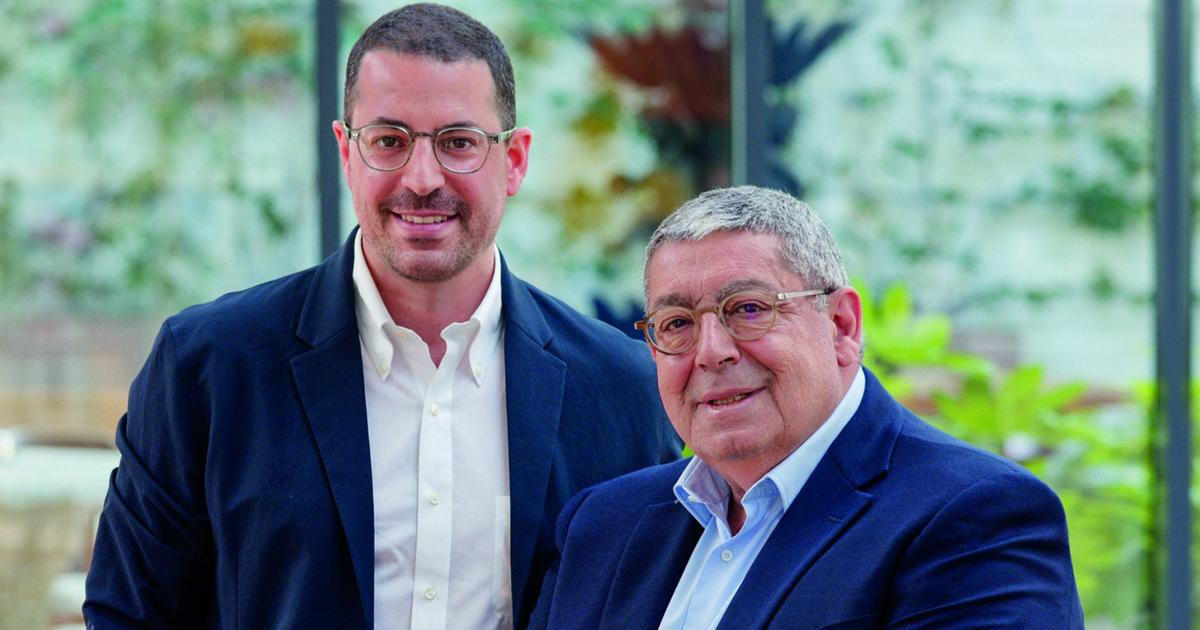Enlarge image
Jens Gönnemann diving on the Great Barrier Reef
Photo: private
Many people dream of a life far away, but only a few make these dreams come true. What is it that drives you? How do you manage the new start in a foreign country? This is what the new book
"Lunch Break on the Mekong"
by SPIEGEL editors Kristin Haug and Verena Töpper is about
.
You have collected stories from Germans in 28 countries on six continents.
This text is an excerpt from her book, which has been available in stores since Monday.
“Before we moved, we bought a globe for our sons, then two and four years old.
My wife and I showed them where the United States was, their mother's homeland.
Then we asked her what's on the other side.
'Australia, where there are kangaroos,' said the big one.
›How about we move there?‹ The boys found that exciting.
Of course, I was concerned that they might miss their home in Munich, but at that age children are at home where their parents live.
At the time, I was the office manager for Tom Enders, who later became Airbus boss
.
That was twelve years ago. When he moved to Toulouse, he asked me what I had in mind for the future. I wanted to be as far away as possible. I was annoyed by the Franco-German skirmishes between the Airbus headquarters in Paris and Munich. I also wanted to try something new and live in a country I'd never been to before. It is not uncommon for an office manager to be sent abroad; this is practically the next step on the corporate ladder. Apparently I made a good impression and that helped me at the time.
As far away as possible - that meant Australia for me, because that was where the Airbus location was furthest from Europe.
I was sent there as Managing Director.
I am a skydiver and through my hobby I also knew some Australian athletes who always seemed loudest and funniest at international sporting events.
I had heard a lot about the Australian way of life, that everyone was somehow more relaxed - and that was exactly what I wanted to do.
My wife and I did not find it difficult to leave.
At the time, we also thought it wasn't a goodbye forever.
Airbus supported us with the move, the search for a house in Sydney and the rent. That was standard at the time and already a luxury. I am very grateful because it made our start in the new country a lot easier and I was able to concentrate on my work quickly. We had our furniture and household items shipped in a container and we took the children's toys with us on the plane.
My older son turned five on the plane to Sydney.
The chief steward congratulated him over the loudspeaker, told all passengers that the little one would live in Australia and would be 'one of us' from now on.
I had already left presents for him in our new house on a previous business trip, and a happy birthday garland was already hanging in the kitchen.
Life on the new continent couldn't have started better.
I started my new job two days after we arrived.
Here I was in charge of 750 employees who assembled and maintained civil and military helicopters and military transport aircraft.
A very complex and sometimes thankless task because I was the mediator between the expectations of the customer and the head office.
And although the people here are a little more relaxed overall, that doesn't mean that their work ethic has suffered.
Australians work hard and conscientiously.
In the meantime I have changed jobs because I had already worked for Airbus in this position in Sydney for eight years, normally only three to five years are planned.
I have been running the state for four years now
Advanced Manufacturing Growth Center.
Here my team and I help Australian companies not only produce something in their own country, but also take on tasks that belong to the entire value chain, such as development before and marketing after production.
I have also been a member of the board of the German-Australian Chamber of Commerce for a few years.
When a marriage falls apart abroad
In 2012, after four and a half years in Australia, I was even able to take on Australian citizenship.
That was pretty easy - probably also because I was below a certain threshold at the age of 45 and my salary above a certain threshold.
I didn't find the naturalization test difficult either.
I can still remember one question: Should women be allowed to work?
So it was more about one's own attitude towards the values and norms of the Australian lifestyle and not just about historical or political facts.
But I also had setbacks: my wife and I separated eight years ago.
And if a marriage breaks up abroad, then the law of that country also applies.
In Australia this means that both parents take turns looking after the children.
Simply moving to another city because you have another partner is not so easy here because of the great distances.
I've been married for more than five years, and I met my Australian wife at Airbus when I accidentally threw a foam ball at her head.
But we only got together when she stopped working at Airbus.
We have two children together and the four siblings get on very well with each other.
For Australia at the Skydiving World Cup
Before moving to Australia, I was a member of the German national parachute team for ten years.
In Sydney it was hard at the beginning not to jump with my team members and friends anymore.
So I decided to try another sport first: surfing.
But unfortunately I failed quite a bit.
After a year, a local jumper, whom I knew from previous world championships, asked me if we should start an Australian four-person parachute team;
he knows two other nice jumpers with a lot of experience.
We got along well from the start and after a little more than 40 training jumps we took part in the Australian championship - and even won!
In the two following years we also won the title and took part in the World Cup, which took place in Germany of all places in 2019.
There I had to compete against my former team members - it was weird in the Australian jersey.
At the beginning of my time in Sydney I had to travel to Germany for work in July.
And one thing I'll never forget: when I landed in Frankfurt, it was wetter, colder and darker than in Australia - even though it was winter there.
It was clear to me: I don't want to go back, at least not forever.
The only thing I miss about Germany is the bread and the highways.
I think it's good to be able to drive without a speed limit.
My parents are around 80 years old and are still getting along well.
Luckily, my best friend lives in your neighborhood and could look after you, which calms you down.
My two big boys fly to their grandparents once a year on vacation, and I'm in Germany at least once a year on business and look after them.
There are actually no more moments when I think about going back.
I am very happy here with my family and with my work.
The weather also plays a role.
My wife is always amazed at my urge to go out all the time when the weather is good.
She thinks this is a north German reflex.
But the weather is almost always good here, so I sometimes get on her nerves with my thirst for action.
When I paddle through Sydney Harbor on my surf ski in the morning before work, it is sensationally beautiful.
Every now and then a group of dolphins comes very close to me.
I wonder how crazy I would have to be to leave here permanently. "


/cloudfront-eu-central-1.images.arcpublishing.com/prisa/YZKG6SAMMJEAVBRYAKDJDBL2KI.jpg)


/cloudfront-eu-central-1.images.arcpublishing.com/prisa/DF6H6X535FC6XAUCX6S6RDDVWE.jpg)








/cloudfront-eu-central-1.images.arcpublishing.com/prisa/H7U7FJNUZBG6BPL5PZCMGC6EUY.jpg)